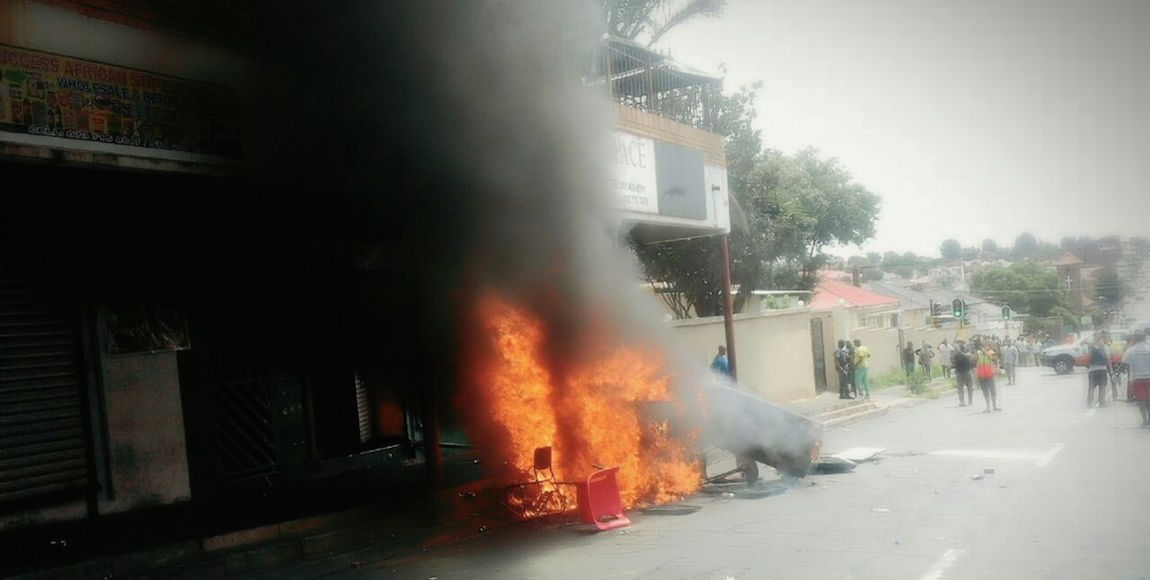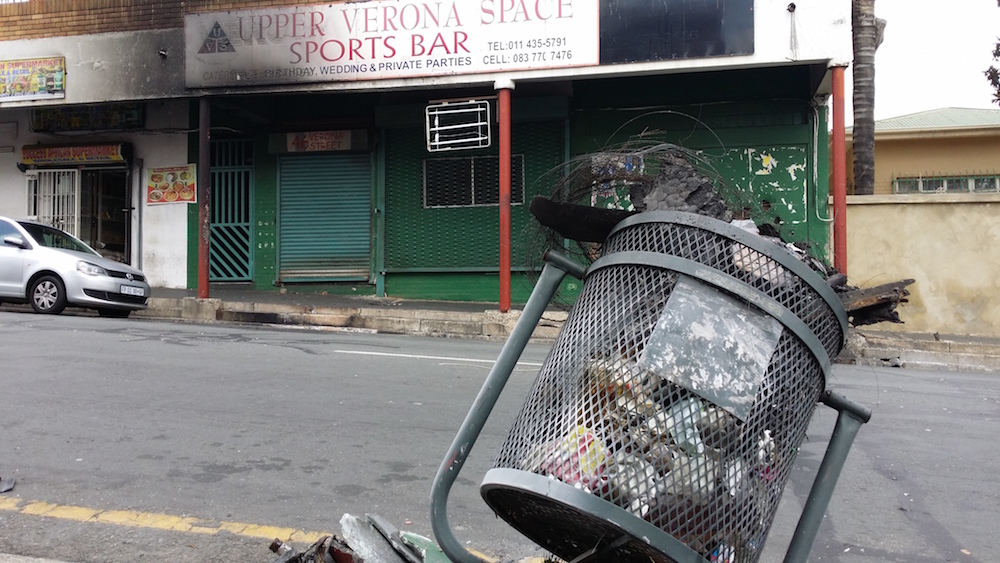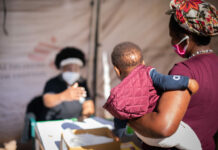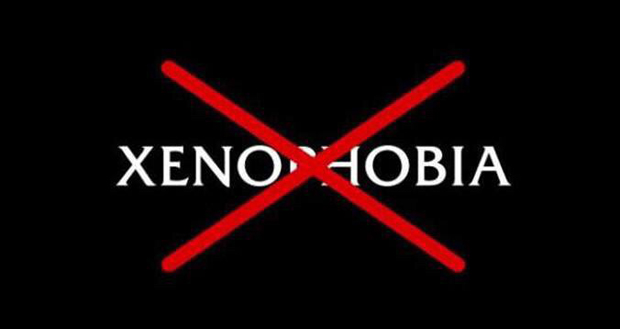On Sunday, 5 February, a group of over 100 residents from in and around Rosettenville, Johannesburg, gathered on Verona Street in protest against drug dealers and brothel owners harming their community. In the early hours of Sunday morning, the protesters enacted mob justice on a local nightclub and at least three private residences. Each place was looted and at least partially set on fire.
All of the sites that were targeted were owned by Nigerian immigrants.
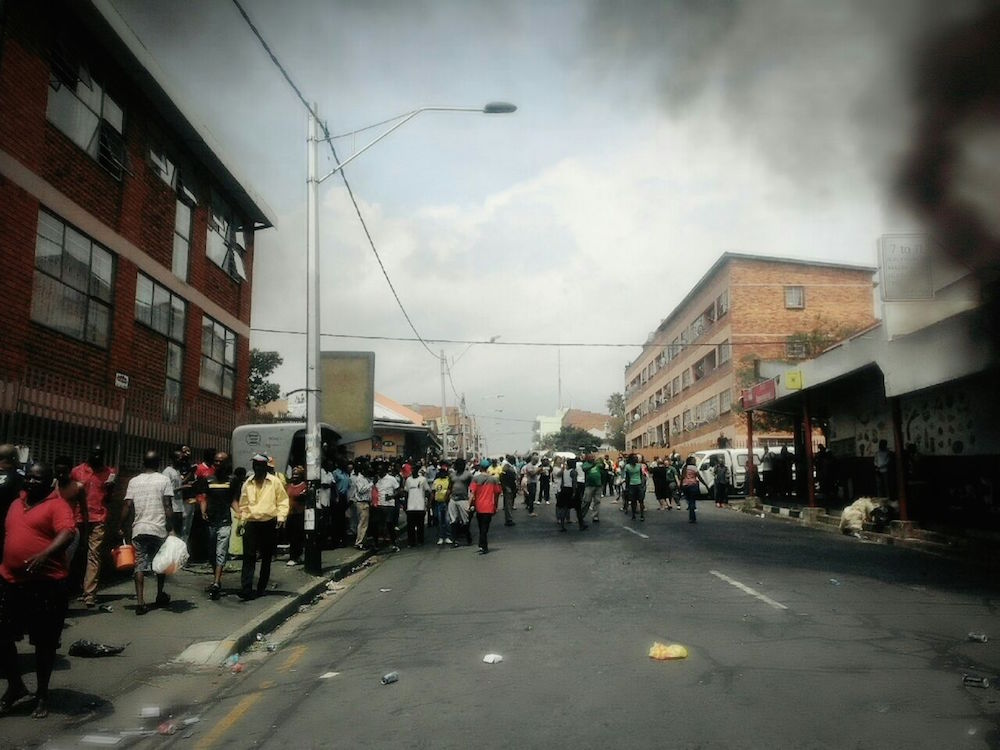
Not as simple as vigilante justice
On Monday, The Daily Vox visited Rosettenville after making contact with a local resident, Adam*, who was well-connected with most members of the community – both shady and otherwise.
Adam described Rosettenville as an area struck by poverty, a growing drug culture, prostitution, gangsterism, and general lawlessness. He said that Rosettenville was not always like this and that it was “common knowledge†that the drug dens and brothels were run and facilitated by Nigerian immigrants.
“They come in here to a place where people are already struggling and start their shit. It’s destroying our community and the government just allows it. The police know them well and are paid off. They collect maybe one druggie a day, to meet their quota, but it’s never the real problems,†Adam said.
Gauteng spokesperson for the SAPS, Lieutenant Colonel Lungelo Dlamini, told the Daily Vox that over the past three months, 72 people had been arrested for drugs in the area.
But concerning to Adam and other residents, though, was how the drug culture was impacting the youth in the area. As we drove through the neighbourhood towards the nightclub that was in flames on Sunday, he described how the dealers didn’t just supply the youth with drugs – but actively encouraged them to buy more. He said that wasn’t just soft drugs like dagga, but hard substances such as crystal meth, heroin, tik and nyaope.
When we arrived at the nightclub, the Upper Verona Space Sports Bar, we were immediately approached by dealers thinking we were there to make a purchase. Adam introduced me to the owner of the club, John.
John and some of his companions described the scene at the beginning of the riot.
“They passed through here and another road, I saw a tyre burning and a building burning. I asked people and they said they were burning the house down the road. When I asked why, they said they didn’t know. I was watching them and after a few minutes I saw them coming towards us,†John told The Daily Vox.
Scenes from Sunday’s #Rosettenville protest against drugs and prostitution in the community. Residents raiding local Nigerian-owned club pic.twitter.com/3Cc0AX3zi6
— Jameel (@indie_impimpi) February 6, 2017
John described how he locked the nightclub and witnessed as it was broken into and raided by the protesters. To him and his companions, these attacks seemed to be xenophobic, as only foreigners were targeted.
All the alcohol and money in John’s club were looted. The protesters threw furniture outside, along with four plasma televisions, and set it all alight.
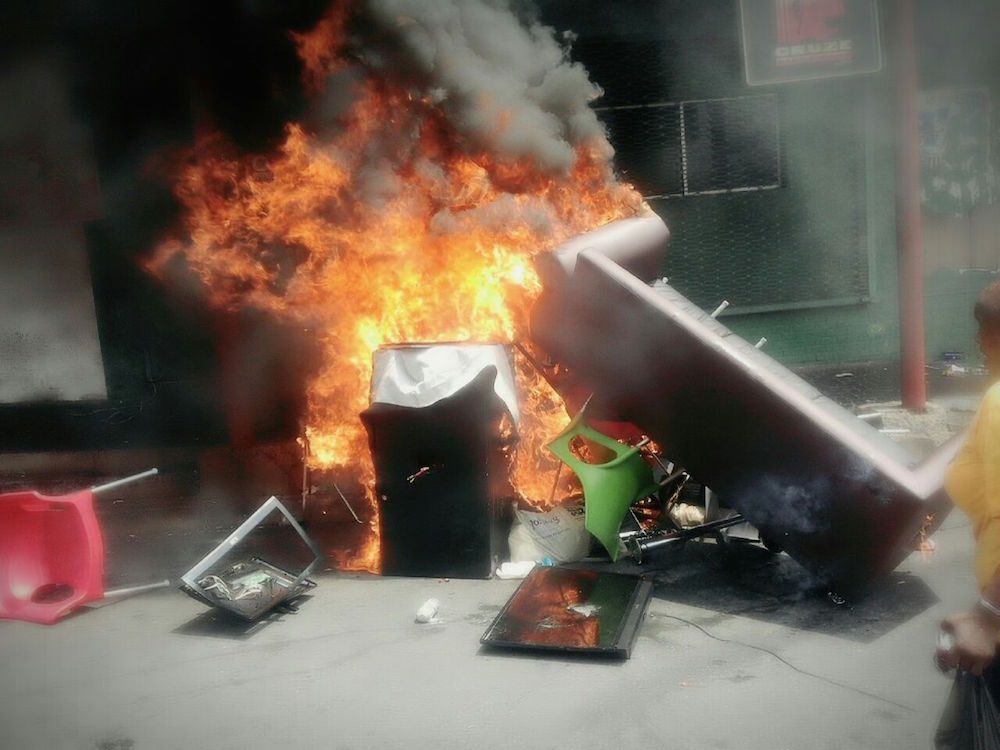
Not as simple as xenophobia
As we listened to John’s group’s claims that they didn’t understand why they were targeted, a South African man walked by, laughing at what was being said. The stranger said John was lying. John identified this man, “Mafiaâ€, as being one of the men who took part in the protests on Sunday.
We later spoke to Mafia, who said that John and his friends were connected to the drug syndicate that operated in the area and through the brothels. The nightclub, according to Mafia, was where many of the transactions happened. Mafia said he lived in Rosettenville all his life and that residents knew that the brothels were involved in sex trafficking and child prostitution, which the police never intervened in.
“It’s obvious that they prostitute children and give them something to smoke. These kids are very young [as young as 12 years old]. They get them from Mpumalanga and [KwaZulu Natal], and tell them they’re finding them jobs. They’re child prostitutes and the whorehouses are where they’re kept. This is going to happen again, and I know who the kingpins are. They know why this is happening but they’re saying they don’t know. They can’t tell you the truth,†Mafia said.
The SAPS’s Dlamini said there are several operations that have been conducted with the Department of Social Development to remove young girls from the streets. He said the police are not aware of any prostitution of young girls who have been recruited from KZN.
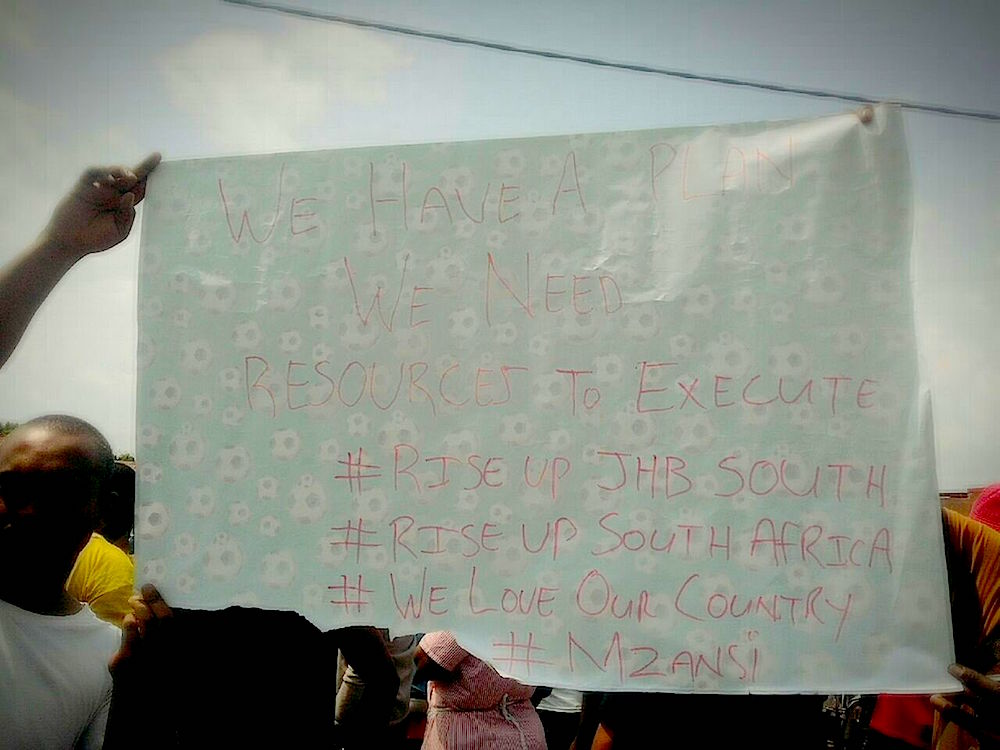
Lucile, a resident who lives around the corner from the club, was present at the protest and felt it was a necessary move but did not condone the violent tactics used.
“People seem very upset about what’s been going on because of the kids walking around here. They did say it will happen again on Saturday until people decide to move or something. Everyone says that they’re worried about the kids because they are dying because of the drugs,†she said.
Most interestingly, Lucile pointed out that the protesters had a list of addresses on a piece of paper – the addresses of the places that were targeted and burned.
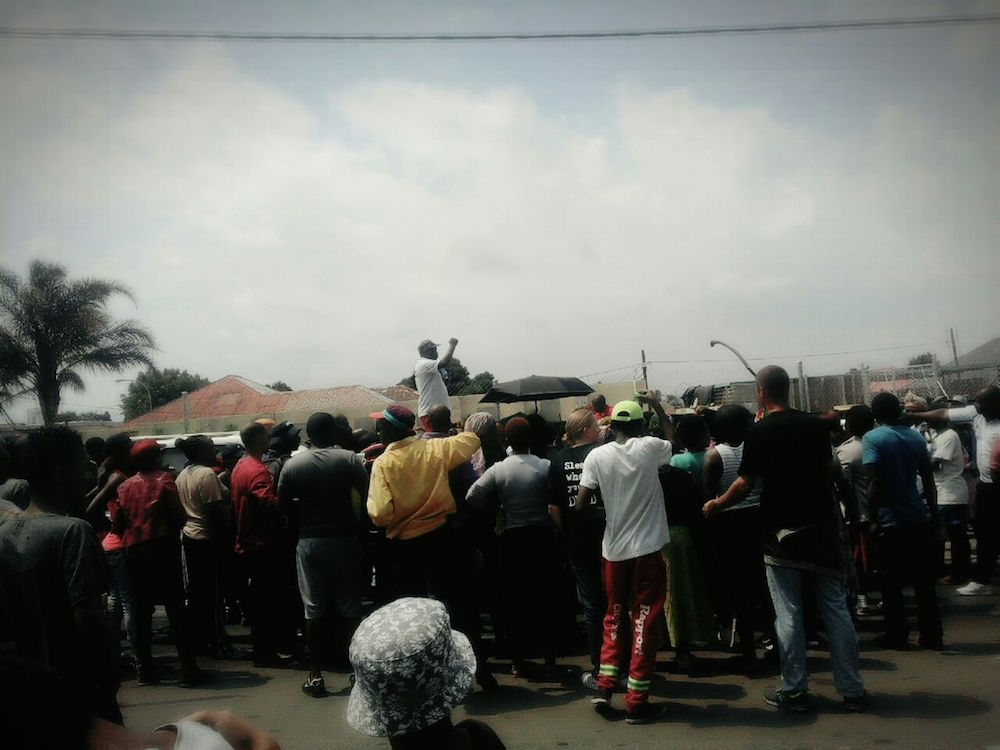
Adam showed me to one such residence.
As we arrived at the house, many men seemed to be rebuilding a wall. The group – all Nigerian men – were on edge as we stopped the car. Adam had to assure them that we meant no harm. The homeowner told us that he was at church when his house was targeted.
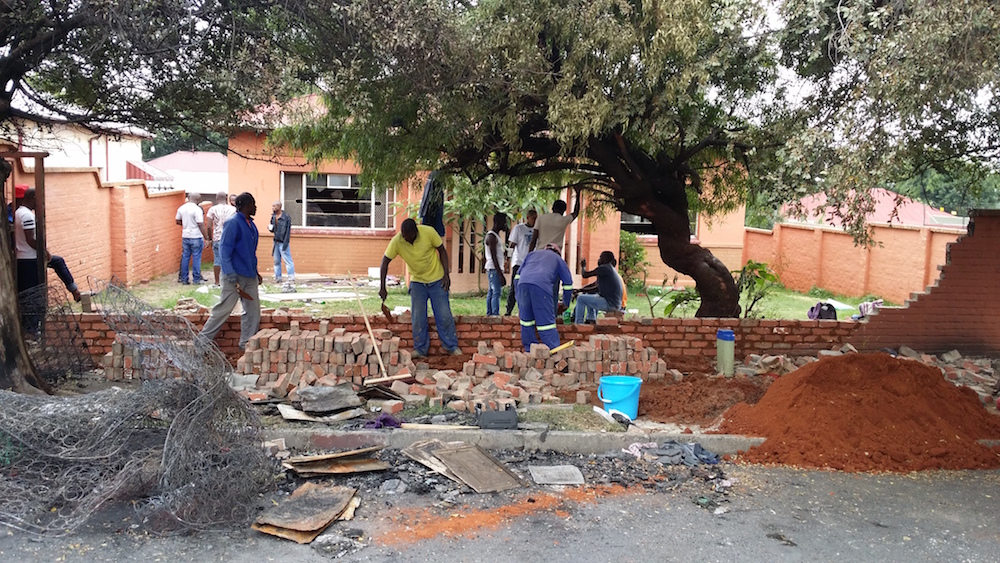
“Before I left everything was fine and when I came back everything was fucked up. I was called at 11 telling me they broke the wall and burnt my property. I only have the clothes I’m wearing. I don’t know why they targeted the house, they said that it was a drug house. I don’t want to make a case, sometimes you have to face what you see. Life continues,†the resident said.
Walk through one of the Nigerian homes that was set on fire during the #Rosettenville protests. pic.twitter.com/MhEn1zE0T5
— Jameel (@indie_impimpi) February 7, 2017
Mob justice seemingly the norm
We spent the rest of the day visiting the houses that were allegedly used as brothels. There were a number of Nigerian men sitting outside them, who allowed us inside, where a few women seemed to be getting dressed and collecting their belongings. These houses were also looted before having their possessions burned outside. At the final house, we were shown the remains of a car that had been completely torched.
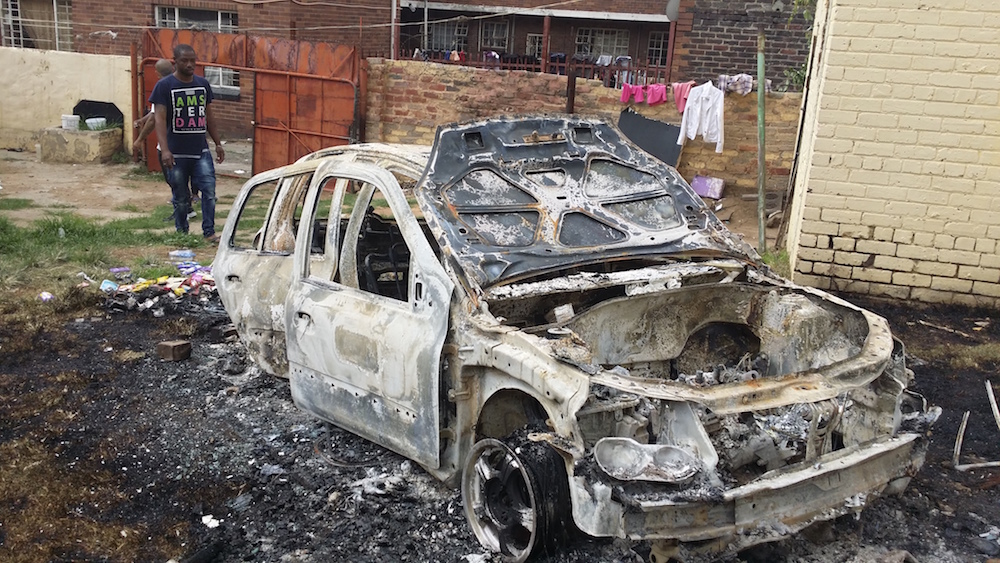
The men showing us around felt strongly that the targeting was as a result of jealousy and xenophobia, and nothing to do with the kinds of “businesses†they were running. They claimed they never forced anyone to buy drugs and that their customers were acting freely.
Regardless of their customers’ supposed free will, there’s no doubt that drug addiction and the influence of narcotics impact the health and futures of those exposed to them – especially the youth. If the residents’ claims of police corruption are legitimate, then it seems likely that a community might find mob justice their best bet at reclaiming their community.
When pressed with the claims of police corruption Lt Colonel Dlamini said that it is unfortunate that people who are aware of corrupt police officers do not come forward and report them, but continue to make allegations. He said that, “corrupt police officers are an embarrassment to the serviceâ€.
But words only go so far, and until the rot in our police services is sorted out, the most vulnerable of our communities are left to find solutions themselves.
As if to emphasise this, as we returned to Adam’s home, we witnessed that a considerably bruised boy was being turned over to the police after being beaten by members of the community for stealing a cellphone. Mob justice was indeed the judge and jury of Rosettenville, where police were seen as untrustworthy.
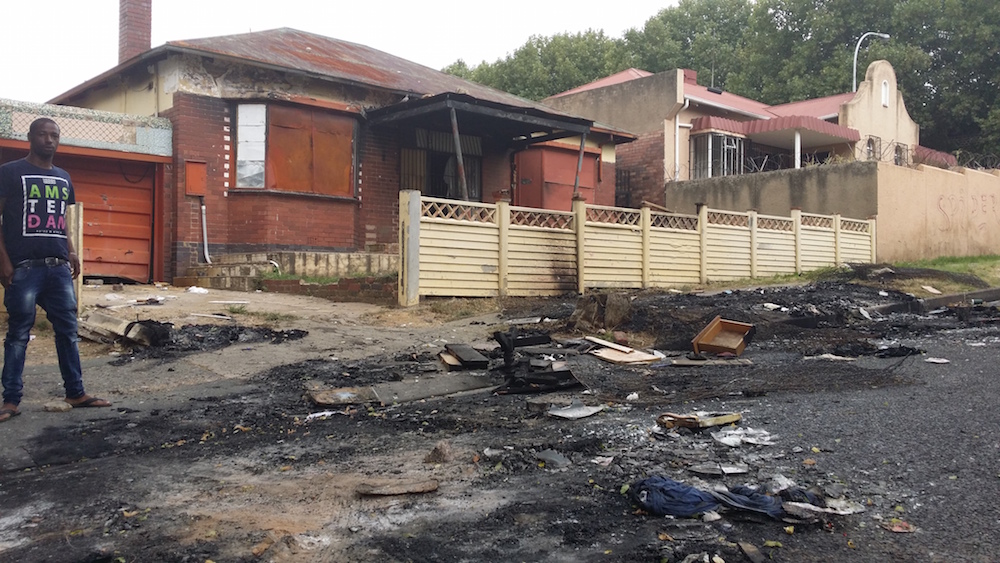
Yet, at the same time, it cannot be ignored that every house and business that was targeted was owned or inhabited solely by Nigerian people. In the context of poverty, it’s not unheard of that people target minorities as scapegoats. Yet in spite of this, next to John’s nightclub was supermarket owned by Pakistani immigrants who were never targeted, despite the riot. They seemed to be flourishing in the community.
I discussed these issues with Adam as I thanked him for showing me around. His opinion on the matter had changed.
Not just a case of building walls
When I first met Adam, he was convinced that the violence of Sunday was completely justified. However, after seeing and hearing people’s first-hand accounts, he felt great sympathy for what the Nigerians in the community had gone through. He acknowledged that while many of the local Nigerians were involved in despicable dealings, this was not all of them.
“I don’t know, man. It’s so confusing. I mean during apartheid we took refuge in their countries and now we’re doing this to them when they come here. I’m worried it’s going to start a war here, and we don’t need that,†Adam told me.
I shared his concerns, and worry for what will occur at the next planned protest on Saturday, 18 February. The Nigerians in Rosettenville made it clear that they would protect themselves and their property. While the rest of the community seem committed to ending the scourge that’s been poisoning their homes.
There’s no doubt that something must be done. Especially if the allegations of child prostitution and sex trafficking are in any way true.
My concern, however, is whether the Rosettenville community, much like US president Donald Trump and Johannesburg’s own mayor are equating the removal of immigrants with the removal of crime. Such sentiments are very dangerous.
Something does indeed have to be done to create safe and humane communities – but let’s hope we don’t resort to building walls to do so.
*Name has been changed to protect his identity.

